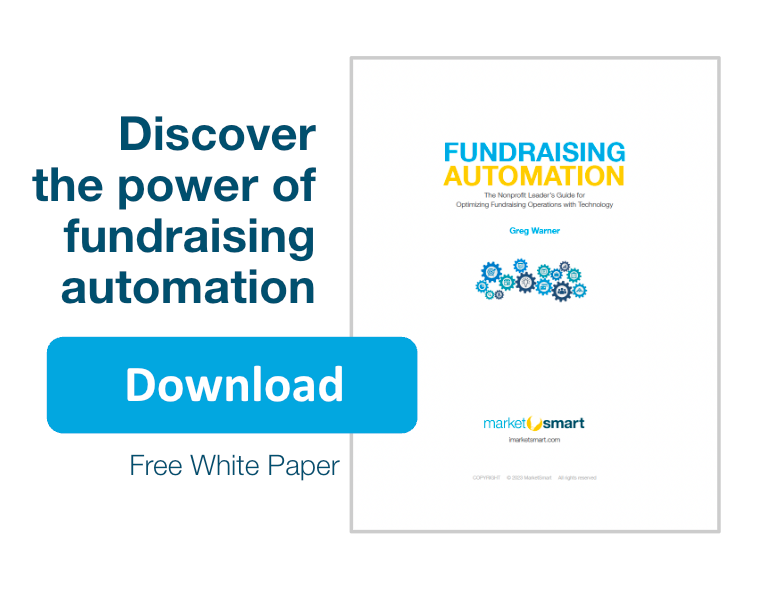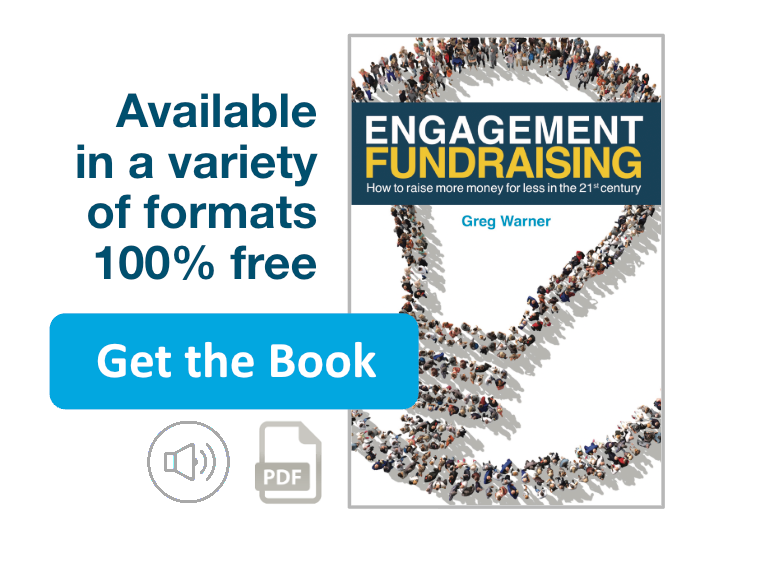 In the for profit world they call it customer service.
In the for profit world they call it customer service.
All of us get frustrated when we feel slighted or disrespected. Yet, sadly, nonprofits are slighting and disrespecting their supporters every day with poor customer service.
Here are some questions to ask yourself to see if you are disrespecting your supporters.
- Is your “DONATE NOW” button easy to find?
- Are you using the Donor Advised Fund widget on your website to make it easy for wealthier supporters to make major gifts (average is over $4,000) online?
- Is your website talking about your organization and how awesome you are? Or are you making the donor feel like the hero? Do the latter, not the former!
- Is it easy for a supporter to talk to a human being (not a recording) at your organization?
- Can they instantly “CHAT” online with someone on your staff?
- Can they volunteer or get involved easily?
- Can they see how their gifts are making a difference?
- Have you invited them to see proof of the impact of their donations recently?
- Are you asking them for too much money too frequently?
- Are you constantly increasing the ask amount without showing the impact of their gifts or providing opportunities for engagement?
- Worst of all, are you spamming your supporters or sending them junk mail that ticks them off?
- And finally, but most importantly, are you surveying your supporters to learn about their wants, needs and desires?
Related Posts
>> 9 Questions to Help You Determine If Your Results Are Good
>> 7 Questions You Better Be Able to Answer If You Want to Keep Your Doors Open
>> 7 Ways Your Competitors are Stealing Your Gifts





Recent article in the Chronicle of Philanthropy indicated that several larger charities have dropped the DAF widget as it was not being utilized. Is there research indicated this is generating additional gifts for organizations? Is it a perception issue in the mind of the donor that the organization is focused on meeting the needs of partners?
Thanks so much for commenting on my blog.
I wonder if you wouldn’t mind sending me the link to the article that says that people are not using my widget. We have only seen growth in the use of the DAFwidget and no one from the Chronicle contacted me or my staff at all.
I wonder if they are confusing my widget (which has over 800 DAFs in it) with the DAFdirect widget which only includes 4 DAFs. If they are talking about the DAFdirect widget, that would make sense since it’s a terrible tool.
Any light you can shed on this would be greatly appreciated.